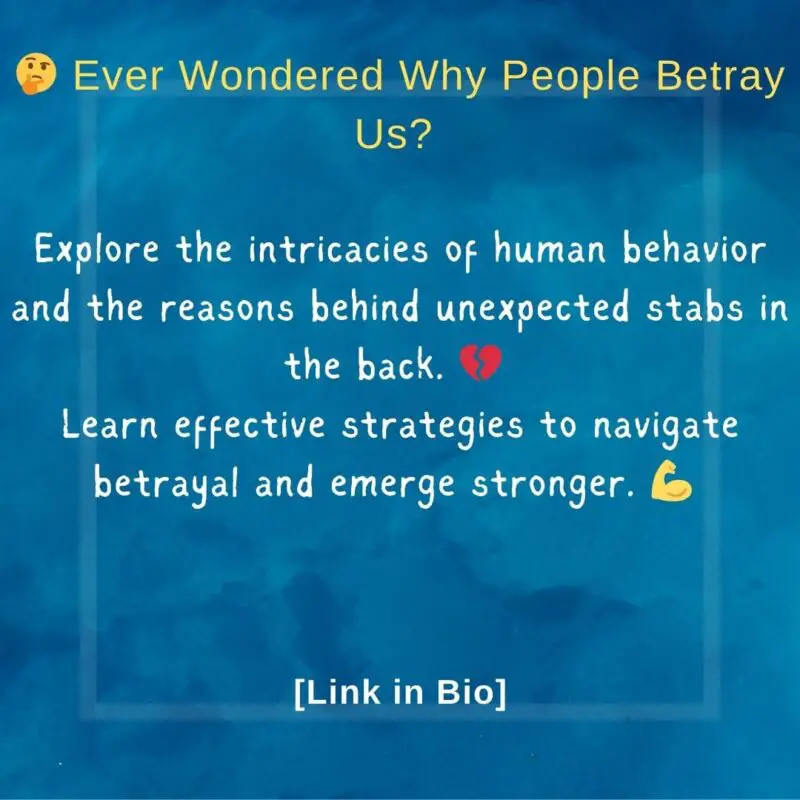The Evil behind us is the phenomenon of people appearing friendly or supportive to your face but betraying you behind your back is a complex aspect of human behavior.

Unveiling the Shadows: Understanding the “Evil Behind Us”
Human behavior is complex, often shrouded in layers of motives that may not be immediately apparent. Delving into the shadows, we uncover reasons why individuals resort to actions that betray trust or undermine others. Whether it’s driven by hidden agendas, jealousy, fear, or social dynamics, the underlying motives reveal a deeper complexity to human interactions.
In this exploration of the “evil behind us,” we unravel the intricacies of human behavior, shedding light on the hidden motives that drive actions contrary to trust and empathy. From concealed agendas to social pressures, each aspect offers insight into the darker facets of our social fabric. Understanding these motives is the first step towards navigating interpersonal dynamics with greater awareness and resilience.
Here are some reasons why such behavior may occur:
- Hidden Motives: People may have ulterior motives or personal agendas that they conceal to maintain a positive image.
- Jealousy or Competition: Feelings of jealousy or a sense of competition can lead individuals to undermine others to elevate themselves.
- Fear of Confrontation: Some people avoid confrontation and may resort to indirect methods, such as gossip or betrayal, to express dissatisfaction.
- Insecurity: Insecure individuals may try to diminish others to feel more secure or to divert attention from their own insecurities.
- Lack of Empathy: Some individuals may lack empathy and may not fully understand the impact of their actions on others.
- Social Dynamics: Group dynamics and social pressures can influence individuals to conform to negative behaviors for acceptance or belonging.
- Miscommunication: Misunderstandings or miscommunication can sometimes lead to unintended betrayals.
Understanding that people’s motivations and behaviors are influenced by various factors can help navigate relationships and foster a more empathetic perspective.
How to Deal with the Evil behind us?
dealing with betrayal or dishonesty can be challenging, but here are some strategies that may help:
- Stay Calm: Take a moment to process your emotions before reacting. Responding impulsively may escalate the situation.
- Reflect on the Situation: Assess the situation objectively. Consider whether there might be misunderstandings or if there are valid reasons behind the actions.Navigating Gossip: Choosing the Right Response: Amidst interpersonal challenges, gossip can often exacerbate conflicts. Learn effective strategies for balancing gossip and choosing the right response here.
- Communication: If you feel comfortable, communicate openly with the person involved. Share your feelings and try to understand their perspective. Honest communication can sometimes resolve conflicts.
- Set Boundaries: If the betrayal is a recurring pattern, establish clear boundaries to protect yourself. This may involve limiting your trust in certain situations or with specific individuals.
- Seek Support: Reach out to friends, family, or a trusted confidant to share your feelings. Having a support system can provide emotional assistance during difficult times.
- Focus on Self-Care: Pay attention to your well-being. Engage in activities that bring you joy and relaxation. Taking care of yourself emotionally and physically is crucial during challenging times.
- Learn and Grow: Use the experience as an opportunity for personal growth. Reflect on what you’ve learned from the situation and how you can better navigate similar challenges in the future.
- Forgiveness: Forgiveness doesn’t necessarily mean condoning the actions, but it can free you from carrying the burden of resentment. It’s a personal choice that may take time.
- Evaluate Relationships: Assess whether the relationship is worth maintaining. Some relationships may need distance, while others may benefit from open communication and rebuilding trust.
Remember that everyone’s situation is unique.
Do Follow for More Tips and Inspiration:
- Instagram: Follow us on Instagram
- Pinterest: Follow our Pinterest profile
FAQs related with “Evil Behind Us”
What is the concept of “Evil Behind Us”?
“Evil Behind Us” refers to the phenomenon where individuals appear friendly or supportive in person but betray or undermine others behind their backs.
What are some common reasons for this behavior?
Common reasons include hidden motives, jealousy, fear of confrontation, insecurity, lack of empathy, social dynamics, and miscommunication.
How can understanding these motives help in navigating relationships?
Understanding these motives can provide insight into human behavior, enabling individuals to approach relationships with greater awareness and empathy.
What strategies can be employed to deal with betrayal or dishonesty?
Strategies include staying calm, reflecting on the situation, communicating openly, setting boundaries, seeking support, focusing on self-care, learning and growing from the experience, considering forgiveness, and evaluating relationships.
Is forgiveness necessary when dealing with betrayal?
Forgiveness is a personal choice and may not necessarily mean condoning the actions. It can, however, free individuals from the burden of resentment.
How can individuals assess whether a relationship is worth maintaining after experiencing betrayal?
Individuals can evaluate relationships by considering factors such as open communication, willingness to rebuild trust, and the overall benefit or detriment to their well-being.
Where can I find more tips and inspiration on navigating interpersonal challenges?
You can follow our Instagram and Pinterest profiles for more tips and inspiration on handling interpersonal challenges and fostering healthy relationships.
